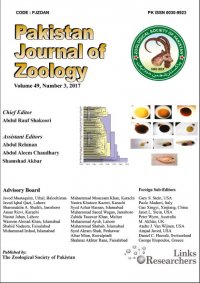Label-Free Quantification based Proteomic Analysis of Serum Obtained from Henoch–Schönlein Purpura Patients before and after Zhenbao Pill Treatment
Label-Free Quantification based Proteomic Analysis of Serum Obtained from Henoch–Schönlein Purpura Patients before and after Zhenbao Pill Treatment
Wuritunashun*, Burenbatu, Narenqiqige, Jiuguniang, Eerdunduleng, Shuanglian Wang, Cuiqin Gong, Hashengaowa, Huizhi Jin, Baiwurihan and Chunhaizi
ABSTRACT
Henoch–Schönlein Purpura (HSP), also known as immunoglobulin A vasculitis, is an immune disorder that is predominantly seen in children (8–20/100000 each year) worldwide. It is characterized by inflammation and bleeding of tiny blood vessels in the skin, joints, intestines, and kidneys. The most distinctive characteristic of this type of vasculitis is a purple rash that often affects the thighs and buttocks. The Zhenbao pill, containing several medicinally important compounds, has been found to be effective against a variety of neurological and immunological illnesses. We used a label-free quantification (LFQ) proteomics approach to investigate the effect of the Zhenbao pill on the differential serum protein expression of HSP patients. Out of 14 significantly differentially expressed proteins, four proteins immunoglobulin lambda variable 3-27, immunoglobulin kappa variable 3-11, neural cell adhesion molecule L1-like protein, and immunoglobulin heavy variable 3-33 were upregulated, whereas 10 proteins i.e., protein Z-dependent protease inhibitor, C4b-binding protein alpha chain, heparin cofactor 2, complement C4-A, complement C4 beta chain, vitamin K-dependent protein Z, coagulation factor VII, proteoglycan 4, lipopolysaccharide-binding protein (LBP), thrombospondin-4, and plasminogen activator inhibitor 1 were downregulated. Bioinformatics analysis of these differentially expressed proteins revealed that they play a critical role in immune-related responses. Parallel reaction monitoring validation also substantiated the results of the LFQ proteomics approach by analyzing the expression of LBP and SERPINA10. This work identifies the proteins and protein-related molecular pathways that are responsible for the efficacy of Zhenbao pill in the management of HSP.
To share on other social networks, click on any share button. What are these?










